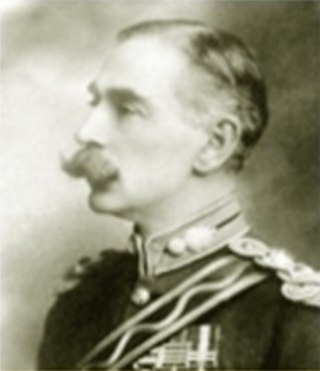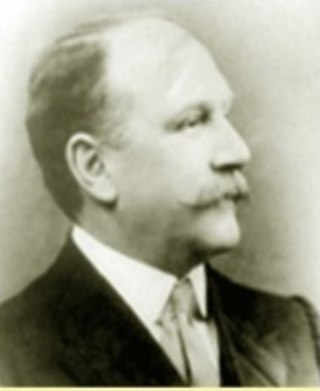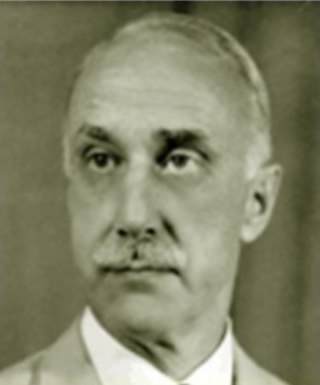Related Research Articles

The Federated Malay States was a federation of four protected states in the Malay Peninsula - Selangor, Perak, Negeri Sembilan and Pahang - established by the British government in 1895, which lasted until 1946, when they, together with two of the former Straits Settlements and the Unfederated Malay States, formed the Malayan Union. Two years later, the Union became the Federation of Malaya, which achieved independence in 1957, and finally Malaysia in 1963 with the inclusion of North Borneo, Sarawak and Singapore.
Sir Richard Olaf Winstedt, or more commonly R. O. Winstedt, was an English Orientalist and colonial administrator with expertise in British Malaya.
The Straits Settlements cricket team was the team that represented the Straits Settlements in international cricket matches between 1890 and 1940.

Foo Choo Choon, a Hakka tin miner, revenue farmer and businessman from Penang and Perak was, in his time, said to have been the richest Chinese man in the world.
Richard James Wilkinson was a British colonial administrator, scholar of Malay, and historian. The son of a British consul, Richard James Wilkinson was born in 1867 in Salonika (Thessaloniki) in the Ottoman Empire. He studied at Felsted School and was an undergraduate of Trinity College, Cambridge. He was multilingual and had a command of French, German, Greek, Italian and Spanish, and later, Malay and Hokkien which he qualified in, in 1889, while a cadet after joining the Straits Settlements Civil Service. He was an important contributor to the Journal of the Malayan Branch of the Royal Asiatic Society (JMBRAS). On 7 November 1900 Wilkinson presented a collection of Malay manuscripts and printed books to the University of Cambridge Library. He was appointed CMG in 1912.

Arthur Benison Hubback was an English architect and soldier who designed several important buildings in British Malaya, in both Indo-Saracenic architecture and European "Wrenaissance" styles. Major works credited to him include Kuala Lumpur railway station, Ubudiah Mosque, Jamek Mosque, National Textile Museum, Panggung Bandaraya DBKL, Ipoh railway station, and Kowloon railway station.

Sir William Thomas Taylor, was a British colonial administrator.
Warren Delabere Barnes was a British colonial administrator.
Cheah Cheang Lim was born in Taiping, Perak, Malaysia. Brought up by his father, Cheah Boon Hean, who was in the trading business, he grew up to become a businessman and miner. He was introduced to the tin mining industries of the time by his uncle Foo Choo Choon, the 'Tin King', who hired him as his attorney. Later, Cheah Cheang Lim was appointed to manage his affairs. Eventually, he started his own company. He also invested in rubber estates but his main interest remained in the tin business.
The 1932 New Year Honours were appointments by King George V to various orders and honours to reward and highlight good works by citizens of the United Kingdom and British Empire. They were announced on 29 December 1931.
The surveyor general of Malaysia was the head of the Federated Malay States Survey Department, now known as Department of Survey and Mapping Malaysia.

Colonel Hugh Milbourne Jackson was a British military officer and surveyor, who served as the Surveyor-General of the Transvaal Colony from 1903 to 1905, and the first Surveyor-General of the Federated Malay States, from 1908 to 1915.
Charles Moncrieff Goodyear was a British surveyor, who served as the third Surveyor-General of the Federated Malay States, from 1920 to 1922.

Joseph Peascod Harper was a British land surveyor, who served as the second Surveyor-General of the Federated Malay States (1919-1920).

John Robert Dewar was a New Zealand surveyor, who served as the fifth Surveyor General of Federated Malay States, between 1933 and 1938.

Alfred George Billing was an Australian surveyor who served as the eighth Surveyor-General of the Federated Malay States, from 1949 to 1952.

Luis Sigismund Himley was an English surveyor, who served as the tenth Surveyor-General of the Federated Malay States between 1956 and 1960.

Christopher Noble was an English surveyor who served as the ninth Surveyor-General of the Federated Malay States, from 1953 to 1956.
References
- ↑ "Trigonometry & Tin Talks". The Straits Times. 3 August 1936. p. 18.
- ↑ International Tin Research and Development Council; Tin Research Institute (1955). "Tin and its uses (Issues 31-50)". Tin Research Institute: 8.
{{cite journal}}: Cite journal requires|journal=(help) - ↑ "No. 33785". The London Gazette (Supplement). 29 December 1931. pp. 1–16.
- ↑ "Press Tribute To Mr. Victor Lowinger". The Singapore Free Press and Mercantile Advertiser. 10 January 1939. p. 6.